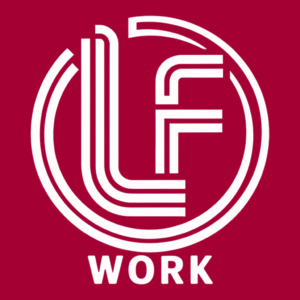Opinions expressed by Entrepreneur contributors are their own.
As the modern workspace evolves, employees are developing higher standards for their work engagements and are intent on aligning with organizations that share their values and respect them as more than an asset.
In navigating through the course of our careers or entrepreneurial journeys, there’s often a desire to find a perfect blend of compensation, recognition and a fulfilling lifestyle. Finding the balance between these three components presents a metaphor akin to what’s mathematically referred to as the “three utilities problem,” though I’ve coined the term “Triangle of Inequality.”
As you are looking for your next venture or job opportunity, you need to run the triangle. No, not the triangle offense made famous by Phil Jackson and Michael Jordan, but rather this “Triangle of Inequality” — or rather, the Career Triangle, as I prefer to call it. This novel approach, from the game theory, used to weigh the decisions of your career, will allow you to take a clear look at what you are committing to and understand what the advantages and disadvantages are. This way, you can go forward with clear expectations or pass on an opportunity for a good reason.
Related: How to Make Career Decisions That You Will Never Regret
A framework for balanced career decisions
The Career Triangle has been guiding career decisions in my professional journey. Early in my career, my mentor illustrated a concept through a derivative of the three utilities problem — where Quality, Speed and Cost were the vertices. A simple yet profound lesson was that one could only pick two points at a time, implying a trade-off. For instance, achieving quality and speed in a project would undoubtedly hike the costs.
Translating this notion to career planning, the vertices change to Compensation, Recognition and Quality of Life. Everyone yearns for a role embodying all three: a lucrative paycheck, accolades for one’s work and a rich personal life. However, the real-world scenario tends to be quite different, typically demanding a trade-off to keep the balance.
Navigating the trade-offs
As you leverage the Career Triangle for your own professional decisions, consider the factors in play and the trade-off you are accepting based on which of the two vertices you choose. For high-compensation roles, the stakes are elevated. There is a surge of expectations, long working hours and a heightened sense of responsibility, with a thin margin for error. These positions, while financially rewarding, can cascade into burnout if not balanced well.
On the other hand, roles with a spotlight of recognition come with their own set of challenges. The scrutiny intensifies, the pressure to maintain a pristine performance record escalates, and the competition for staying in the limelight could be fierce. In the quest for recognition, the balance between professional ambition and personal life could tilt unfavorably.
And then there’s the pursuit of quality of life — a term with fluid definitions as it resonates differently with each individual. It is about drawing clear boundaries between work and personal time and what one is willing to sacrifice to maintain this quality.
Related: 7 Factors That Could Make a Lower Salary a Better Deal
Why can’t you have it all?
Taking all of this into consideration, it’s impossible not to ask: Why can’t you have it all? The response lies in the inherent trade-offs among these three vertices of the Career Triangle. High-stakes compensation roles may impede quality of life or overshadow the desire for recognition. Similarly, the pursuit of recognition might deter one’s quality of life or might come at the expense of financial satisfaction.
The equilibrium among these three is subjective and is dictated by individual priorities at different life stages. A fresh graduate might chase recognition and compensation over quality of life, whereas a mid-career professional might prioritize quality of life over the rest.
Therefore, as you teeter on the cusp of your next job or venture, evaluating your priorities is imperative. Are you at a stage where financial reward supersedes the other vertices of the triangle? Or are you in pursuit of a balanced lifestyle, even if it means lesser recognition or financial gratification?
Embrace your pragmatism
Knowing the sacrifices and the benefits each vertex offers prepares one to make informed decisions, which is crucial for professional growth and satisfaction. It demystifies the illusion of a “perfect” position and provides a pragmatic lens through which one can evaluate opportunities, making the complex realm of career decision-making more approachable.
As you step into the realm of new possibilities, armed with the insights of the Career Triangle, the path may seem less daunting, instilling a sense of preparedness and confidence. The triangle does not preach a pessimistic view but rather underlines the importance of informed choices, showcasing the necessity of balance in professional pursuits. It is about embracing the journey with open eyes, understanding the sacrifices and being ready to pivot when life’s priorities shift, thereby fostering a culture of adaptability.
This nuanced perspective, acknowledging the Career Triangle, not only cultivates a mindset of growth but also nurtures resilience, an invaluable virtue as we traverse through the stages of our professional lives.



